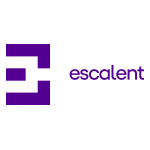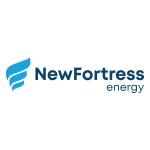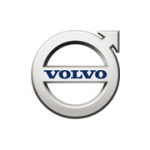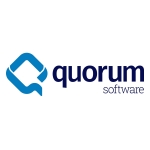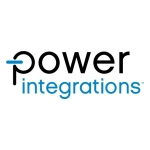Provides low-emission fuel solution for the northeastern United States
HOUSTON--(BUSINESS WIRE)--Tennessee Gas Pipeline (TGP), a subsidiary of Kinder Morgan, Inc. (NYSE: KMI), and Southwestern Energy Company (NYSE: SWN) today announced the initiation of a responsibly sourced natural gas (RSG) strategic agreement. The goal of the agreement is to further reduce methane emissions across the natural gas value chain by receiving and transporting RSG to market and, in this case, specifically to a market in the Northeast. RSG is natural gas that has been produced from a natural gas well and transported by companies whose operations have been independently verified as meeting certain environmental, social and governance (ESG) standards, particularly related to methane emission reductions.
RSG goes through a rigorous verification process to certify that it meets or exceeds the standards established by the ONE Future coalition, which are designed to achieve a 1% or lower methane intensity level, or 99% methane efficiency, by 2025. With this agreement, Project Canary will apply its TrustWellTM certification process and continuous emissions monitoring devices to SWN production sites in the Appalachian Basin, ensuring a methane intensity rate of 0.28% or lower, per ONE Future upstream targets (production, compression and gathering). SWN achieved an intensity rate of 0.055% in 2019, according to its annual Corporate Responsibility report, and is pursuing further emission reductions through various initiatives. The KMI transportation network, including TGP, has significantly beat its 0.31% ONE Future transmission target with a rate of only 0.03% in 2019, as published in the company’s latest ESG report. These combined industry segments substantially outperform the estimated average intensity rate of up to 1.41% for conventional natural gas emissions across the industry value chain, according to EPA data provided by a 2018 peer-reviewed article in Science Magazine. Additional criteria evaluated by Project Canary’s Trustwell certification include impacts to air, land, water and the community as well as the mechanical integrity of well design and practices.
As part of the agreement, SWN will produce and TGP will transport the RSG on its existing pipeline infrastructure to benefit a large market in the Northeast where the distribution of the RSG is expected to power the equivalent of approximately 100,000 homes annually while reducing GHG emissions equal to the removal of approximately 5,000 internal combustion engine vehicles from the road. The market will begin experiencing the benefits of RSG November 1, 2021. TGP and SWN are both founding members of the ONE Future Coalition, working together to reduce methane emissions and to ensure the future of natural gas as a long-term sustainable fuel.
“We are pleased to be part of this agreement focused on providing this lower-carbon fuel to the Northeastern United States,” said KMI’s President of Natural Gas Pipelines Tom Martin. “This is one of several RSG initiatives currently underway at Kinder Morgan and aligns with our commitment to minimize methane emissions associated with the production, transportation, storage and distribution of natural gas.”
“Southwestern believes responsibly sourced gas is foundational to a low carbon future. This innovative agreement with Kinder Morgan to deliver responsibly sourced energy to customers in the Northeast is evidence of our commitment to help bring about that future. We have been first movers in the RSG market, announcing earlier this year the certification and continuous monitoring of our entire existing and future Appalachia portfolio. This strategic agreement builds on that initiative and continues our efforts to provide cleaner energy to customers across the United States and beyond,” said Southwestern Energy President and Chief Executive Officer Bill Way.
About Kinder Morgan, Inc.
Kinder Morgan, Inc. (NYSE: KMI) is one of the largest energy infrastructure companies in North America. Access to reliable, affordable energy is a critical component for improving lives around the world. We are committed to providing energy transportation and storage services in a safe, efficient, and environmentally responsible manner for the benefit of people, communities and businesses we serve. We own an interest in or operate approximately 83,000 miles of pipelines and 144 terminals. Our pipelines transport natural gas, renewable fuels, refined petroleum products, crude oil, condensate, CO2 and other products, and our terminals store and handle various commodities including gasoline, diesel fuel, chemicals, ethanol, metals and petroleum coke. Learn more about our renewables initiatives on the low carbon solutions page at www.kindermorgan.com.
Important Information Relating to Forward-Looking Statements
This news release includes forward-looking statements within the meaning of the U.S. Private Securities Litigation Reform Act of 1995 and Section 21E of the Securities and Exchange Act of 1934. Generally the words “expects,” “believes,” anticipates,” “plans,” “will,” “shall,” “estimates,” and similar expressions identify forward-looking statements, which are not historical in nature. Forward-looking statements in this news release include express or implied statements concerning the anticipated timing and benefits of the RSG program. Forward-looking statements are subject to risks and uncertainties and are based on the beliefs and assumptions of management, based on information currently available to them. Although KMI believes that these forward-looking statements are based on reasonable assumptions, it can give no assurance as to when or if any such forward-looking statements will materialize or their ultimate impact on KMI’s operations or financial condition. Important factors that could cause actual results to differ materially from those expressed in or implied by these forward-looking statements include the risks and uncertainties described in KMI’s reports filed with the Securities and Exchange Commission (SEC), including its Annual Report on Form 10-K for the year-ended December 31, 2020 (under the headings “Risk Factors” and “Information Regarding Forward-Looking Statements” and elsewhere) and its subsequent reports, which are available through the SEC’s EDGAR system at www.sec.gov and on KMI’s website at ir.kindermorgan.com.
About Southwestern Energy
Southwestern Energy Company (NYSE: SWN) is a leading U.S. producer of natural gas and natural gas liquids focused on responsibly developing large-scale energy assets in the nation’s most prolific shale gas basins. SWN’s returns-driven strategy strives to create sustainable value for its stakeholders by leveraging its scale, financial strength and operational execution. For additional information, please visit www.swn.com and www.swn.com/responsibility.
About Project Canary
Project Canary is an independent certification organization that measures, tracks, and delivers trusted ESG data across the energy value chain. They are the leaders in the rating and certification of responsible energy operating practices and provide science and technology-backed emission profiles via continuous monitoring hardware synced with a real-time dashboard. Project Canary Upstream (TrustWell) Certifications, Midstream Certifications, and Canary Continuous Monitoring help identify the most responsible energy supply chain operators. Formed as a Public Benefit Corporation, Project Canary’s team of scientists, engineers, and seasoned industry operators have earned recognition for their uncompromising standards, including being named “Best for the World 2021” B Corp.
To learn more, visit projectcanary.com.

Contacts
KINDER MORGAN CONTACTS
Katherine Hill
Senior Corporate Communications Specialist
(713) 469-9176
This email address is being protected from spambots. You need JavaScript enabled to view it.
Investor Relations
(800) 348-7320
This email address is being protected from spambots. You need JavaScript enabled to view it.
www.kindermorgan.com
SOUTHWESTERN ENERGY COMPANY CONTACTS
Brittany Raiford
Director, Investor Relations
(832) 796-7906
This email address is being protected from spambots. You need JavaScript enabled to view it.
Media Relations
This email address is being protected from spambots. You need JavaScript enabled to view it.
PROJECT CANARY COMPANY CONTACTS
Brian Miller
Vice President, Growth and Policy
(202) 669-3801
This email address is being protected from spambots. You need JavaScript enabled to view it.








